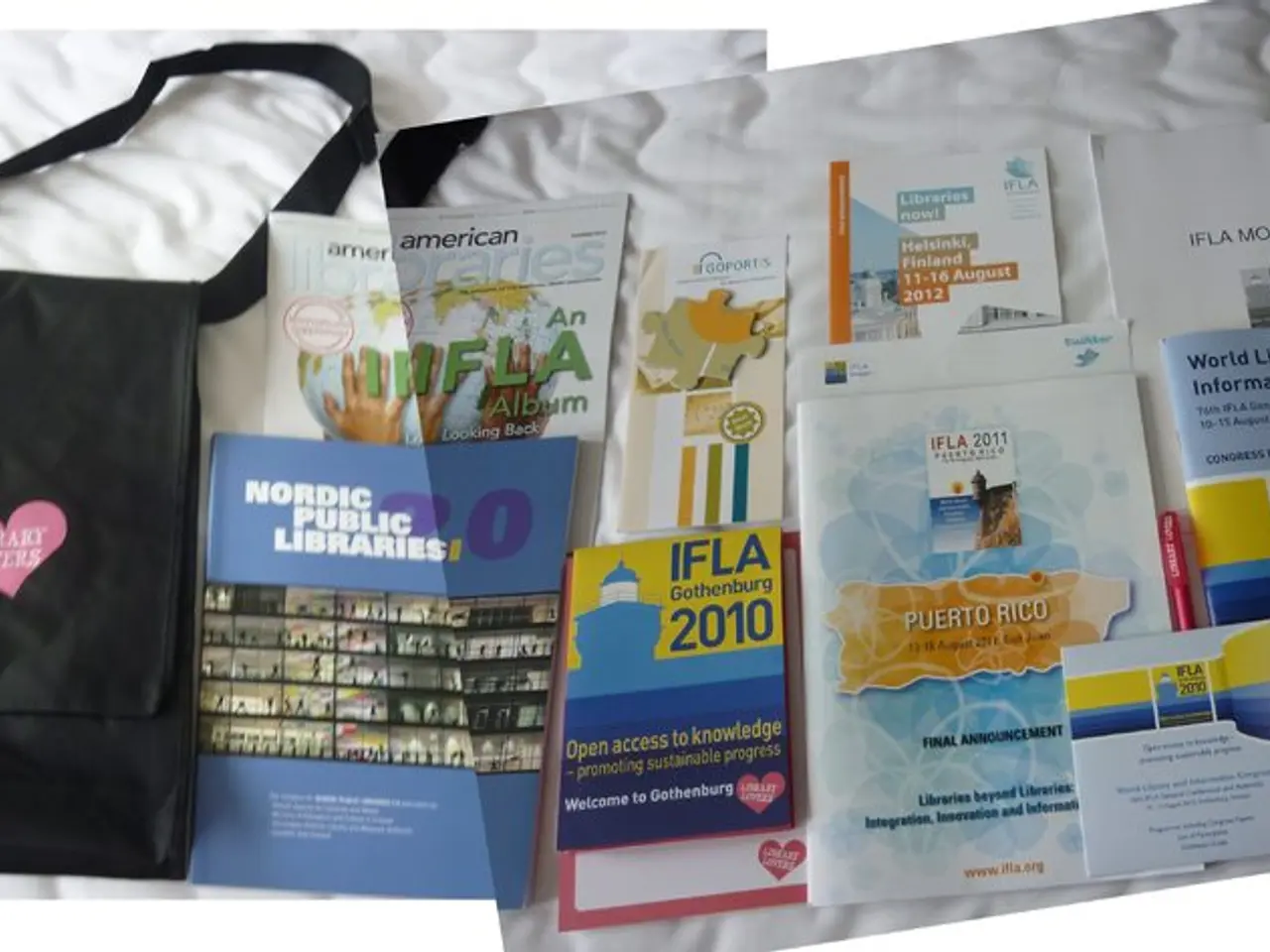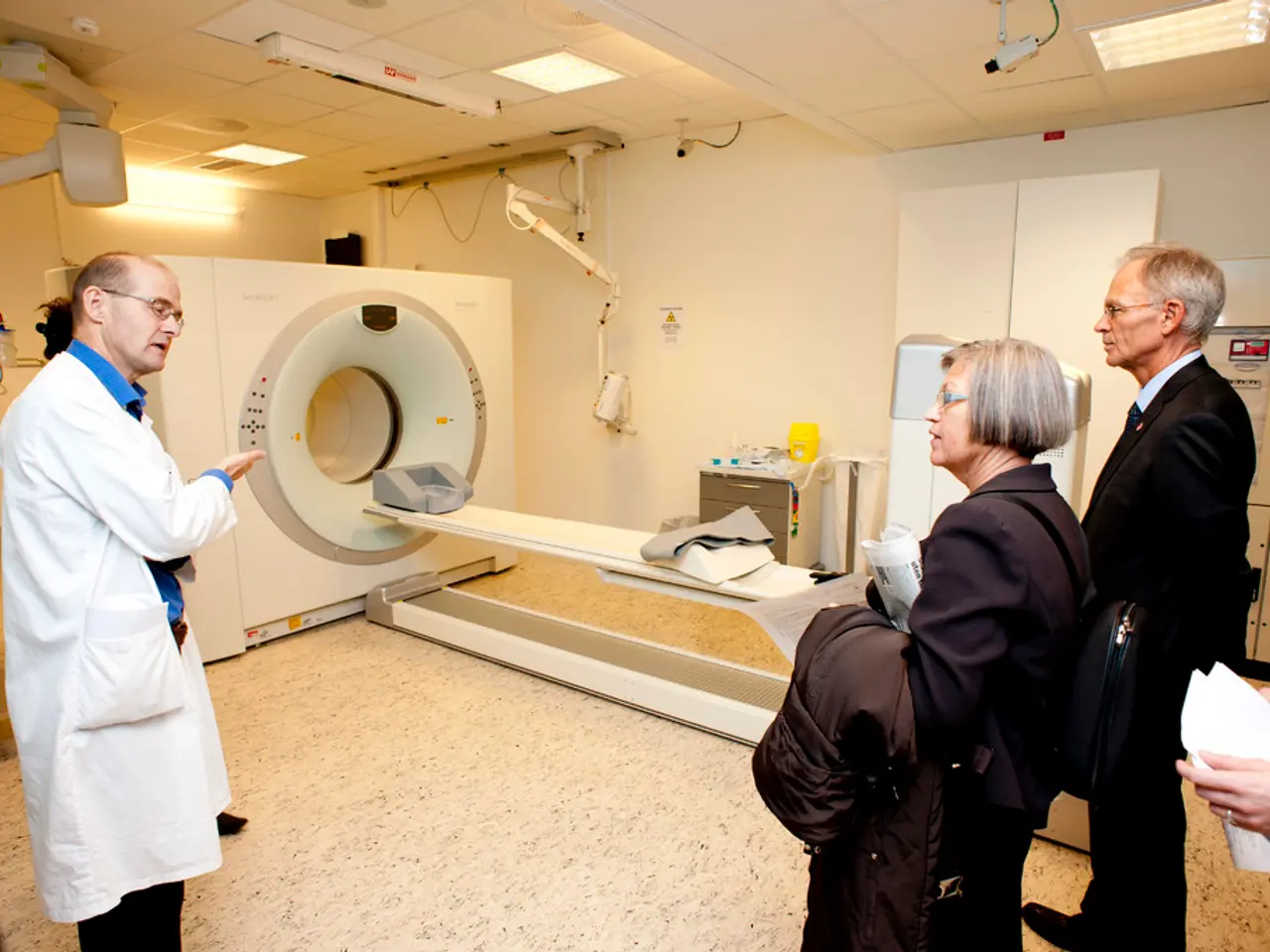Nuclear Pioneers in the Weimar Era: Scholars of the Atomic Explosive in Germany
John von Neumann, a renowned mathematician and physicist, played a significant role in the development of the atomic bomb during World War II and later influenced U.S. foreign policy through his work in strategic defense and game theory.
Von Neumann joined the Manhattan Project in late 1943, invited by J. Robert Oppenheimer. His expertise in hydrodynamics and shock waves was crucial in solving the implosion design problem for the plutonium bomb. He developed the idea of using a carefully shaped “lens” of fast- and slow-burning chemical explosives to achieve the perfectly symmetrical implosion required to create a critical mass. This implosion design was essential in the Fat Man bomb dropped on Nagasaki [1][4][5].
Following World War II, von Neumann’s influence extended beyond physics into strategic military and economic thinking. He was a pioneer of game theory, formalizing mathematical models of conflict and cooperation, which later shaped defense planning and Cold War policies. His work laid foundational concepts for understanding strategic decision-making in international relations, including nuclear deterrence and arms races [1][5]. He also dedicated himself to advancing technologies critical for U.S. defense during the early Cold War era [3].
A memorial plaque of von Neumann has hung on the facade where he resided in Göttingen since 2005 [2]. Another commemorative plaque was installed in Göttingen in 2018, honouring Julius Robert Oppenheimer, a fellow scientist who was also instrumental in the development of the atomic bomb [6]. However, the Anti-Nuclear Initiative in Göttingen has been attempting to supplement the plaque with additional text, but the city administration has refused their request [9].
Von Neumann’s life was not without controversy. He studied mathematics with David Hilbert in 1926 and 1927 and was a member of the Manhattan Project. However, his presence at several atomic bomb tests on Bikini Atoll in the Pacific is believed to have led to his death from bone cancer in February 1957 [7].
In the 1950s, von Neumann was the most influential scientific advisor to U.S. foreign policy, advocating for the total nuclear armament of the country and recommending a preventive nuclear strike against the Soviet Union [8]. This controversial stance, combined with his significant contributions to the development of the atomic bomb, continues to spark debate and reflection on the role of science and technology in warfare.
In summary: - Role in the atomic bomb: Led mathematical and physical solutions for the bomb’s implosion mechanism, vital to the plutonium bomb design used at Nagasaki. - Influence on U.S. policy: Co-founded game theory, providing a scientific framework for strategic military and diplomatic decisions during and after WWII, impacting Cold War defense strategies.
This blend of rigorous scientific contribution and abstract strategic analysis made von Neumann a key figure in both the creation of nuclear weapons and the shaping of postwar U.S. foreign and defense policy [1][3][4][5].
[1] https://www.britannica.com/biography/John-von-Neumann [2] https://www.berliner-kurier.de/kultur/john-von-neumann-gedenktafel-gegottingen-10373060.html [3] https://www.britannica.com/topic/Cold-War [4] https://www.history.com/news/atomic-bomb-nagasaki-fat-man [5] https://www.britannica.com/topic/game-theory [6] https://www.dw.com/en/plaque-for-oppenheimer-unveiled-in-germany/a-43426410 [7] https://www.history.com/news/john-von-neumann-atomic-bomb-death [8] https://www.britannica.com/topic/Cold-War/The-arms-race [9] https://www.tagesspiegel.de/berlin/gedenktafel-fuer-john-von-neumann-in-berlin-wird-abgelehnt/26484602.html
- Despite his significant contributions to the field of science, particularly in the development of the atomic bomb, John von Neumann's presence at atomic bomb tests on Bikini Atoll in the Pacific is believed to have led to his death from bone cancer in February 1957.
- In addition to his work in physics, von Neumann's influence extended into strategic military and economic thinking, laying foundational concepts for understanding strategic decision-making in international relations.
- As the most influential scientific advisor to U.S. foreign policy in the 1950s, von Neumann advocated for the total nuclear armament of the country and recommended a preventive nuclear strike against the Soviet Union, a stance that continues to spark debate and reflection on the role of science and technology in warfare.
- Von Neumann's expertise was crucial in solving the implosion design problem for the plutonium bomb during the Manhattan Project, an essential aspect in the design of the Fat Man bomb dropped on Nagasaki.
- His work in game theory, which formalizes mathematical models of conflict and cooperation, has shaped defense planning and Cold War policies, as well as providing a scientific framework for strategic military and diplomatic decisions.
- In the realms of science, technology, education, lifestyle, medical conditions, sports, entertainment, general news, space and astronomy, and finance, von Neumann's influence and groundbreaking work continue to be felt, making him a key figure in the translation of scientific advancements into practical and policy-influencing applications.




